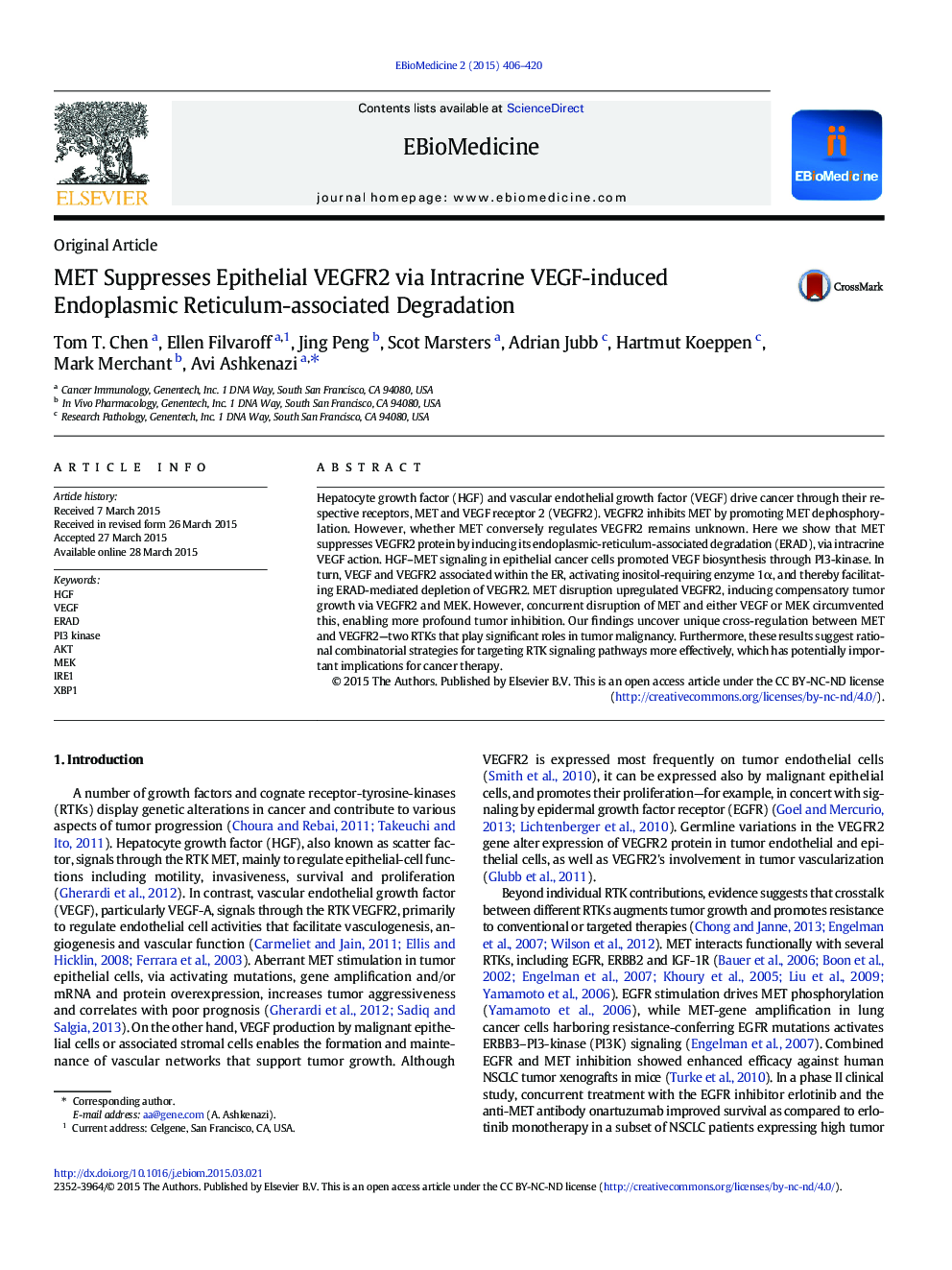| Article ID | Journal | Published Year | Pages | File Type |
|---|---|---|---|---|
| 2121295 | EBioMedicine | 2015 | 15 Pages |
•MET signaling depletes VEGFR2 in epithelial cancer cells via intracrine VEGF and IRE1α-dependent ER-associated degradation.•VEGFR2-mediated compensatory growth limits the anti-tumor efficacy of MET disruption.•This can be circumvented by combined inhibition of MET plus VEGF or MEK, which has potential implications for cancer therapy.
Hepatocyte growth factor (HGF) and vascular endothelial growth factor (VEGF) drive cancer through their respective receptors, MET and VEGF receptor 2 (VEGFR2). VEGFR2 inhibits MET by promoting MET dephosphorylation. However, whether MET conversely regulates VEGFR2 remains unknown. Here we show that MET suppresses VEGFR2 protein by inducing its endoplasmic-reticulum-associated degradation (ERAD), via intracrine VEGF action. HGF–MET signaling in epithelial cancer cells promoted VEGF biosynthesis through PI3-kinase. In turn, VEGF and VEGFR2 associated within the ER, activating inositol-requiring enzyme 1α, and thereby facilitating ERAD-mediated depletion of VEGFR2. MET disruption upregulated VEGFR2, inducing compensatory tumor growth via VEGFR2 and MEK. However, concurrent disruption of MET and either VEGF or MEK circumvented this, enabling more profound tumor inhibition. Our findings uncover unique cross-regulation between MET and VEGFR2—two RTKs that play significant roles in tumor malignancy. Furthermore, these results suggest rational combinatorial strategies for targeting RTK signaling pathways more effectively, which has potentially important implications for cancer therapy.
